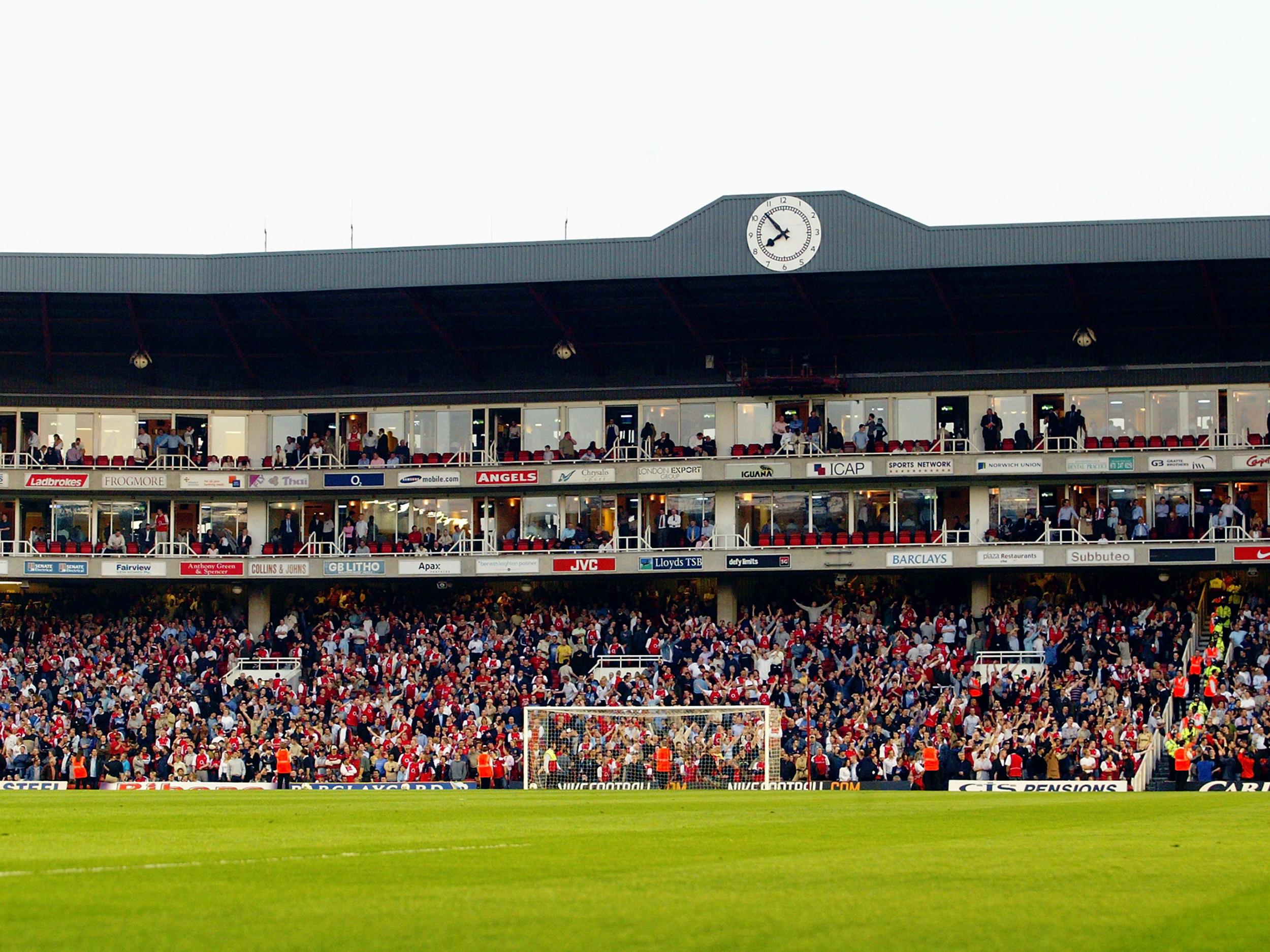Arsenal’s callous response to a dying fan shows us what football has lost
The story seems symbolic of the club’s journey since 2006, when it announced that it was moving to a new, bigger stadium, and its doors and ears closed for good


For many Arsenal fans, it was one of the most exciting parts of the match-day experience. The team bus would pull up outside Highbury and supporters who had waited by the stadium entrance could cheer as the players walked past them, just inches away. The look on kids’ faces when their heroes returned their wave was wonderful.
Now, a team coach with blacked-out windows sweeps past fans and drives straight into an exclusive underground car park. This symbolises everything that has changed at the club in the time I’ve supported it.
Forty years ago this week, I watched my first match. It was the FA Cup Final between Arsenal and Manchester United. I was five years old and I decided I wanted Arsenal to win because I liked their yellow and blue shirts.
With five minutes left of the match, my newly-found team were 2-0 ahead. I was so happy. Then United scored twice in quick succession. Before I could properly process what was happening, Arsenal scored a last-minute winner.
Such drama and what a climax – I’d never known life could be so exciting. I jumped up and down, and felt like my body was going to explode.
When I started going to games in the early 1980s, I quickly realised that football is not usually as exciting as the final five minutes of that match, but I also realised that a lot of the beauty of the beautiful game came from what happened off the pitch.
In 1985, Arsenal became one of the first British clubs to set up a dedicated community team. It was originally launched in response to rioting and unrest on estates.
The club offered time at its training centre so schools and underprivileged locals could use the astroturf pitch and other facilities. The community team’s programmes reached out to the diverse population of north London and you could feel the benefit of it.
On and off the pitch, Arsenal had a more diverse demography. While monkey chants still echoed around many grounds, a black friend at college told me that though he supported Chelsea, he went to Highbury most weekends because it was the only ground he felt safe in.
The community feeling was strong. It actually seemed more like a family than a club. It felt like the doors of the stadium and the ears of those inside were always open to us.

For instance, when I wrote to complain about a minor ticketing issue, the managing director sent me a personal letter inviting me in for a chat with the head of the ticket booking service. Whenever I phoned the club about something I’d recognise the voice at the other end and they’d deal with it.
Many fans had similar experiences. Nowadays you get caught up in a call centre. Or worse: when Alys Courtney emailed Arsenal saying she was dying of cancer and asking if she could transfer her decade-strong Red Membership to a family membership, Arsenal refused and wished her the best with her recovery.
Following a media outcry the club has since apologised but the story seems symbolic of what has been lost since 2006, when it announced that it was moving to a new, bigger stadium, and its doors and ears closed for good.
The directors promised the traumatic move would mean the team would compete with the elite of European football. But instead, it has declined dramatically. In the 13 years before the move, the club won three league titles, five FA Cups, a League Cup, and European Cup Winners Cup. In the 13 years since the move, Arsenal have won just three FA Cups and are hoping to scrape a fifth placed finish this weekend.
Put simply: instead of using the move to fill the trophy cupboard with silverware, the club used the move to fill the bank account with gold. As the (Arsenal supporting) Sex Pistol Johnny Rotten once asked at the end of a gig: “Ever get the feeling you’ve been cheated?”
Arsenal now feels less like a family and more like a cold mechanism to funnel money from those who have little to those who have too much. And if we don’t like it, there’s always a tourist to take our place.
Some might say that this is the inevitable result of the club becoming a global entity in the modern world. Yet look at Anfield on Tuesday night, and you see that soul and success can co-exist.
When the manager Arsene Wenger announced his departure from the club last April, he concluded his emotional farewell statement by saying: “To all the Arsenal lovers take care of the values of the club.”
Intuitive words but perhaps a bit late.
Join our commenting forum
Join thought-provoking conversations, follow other Independent readers and see their replies
Comments
Bookmark popover
Removed from bookmarks